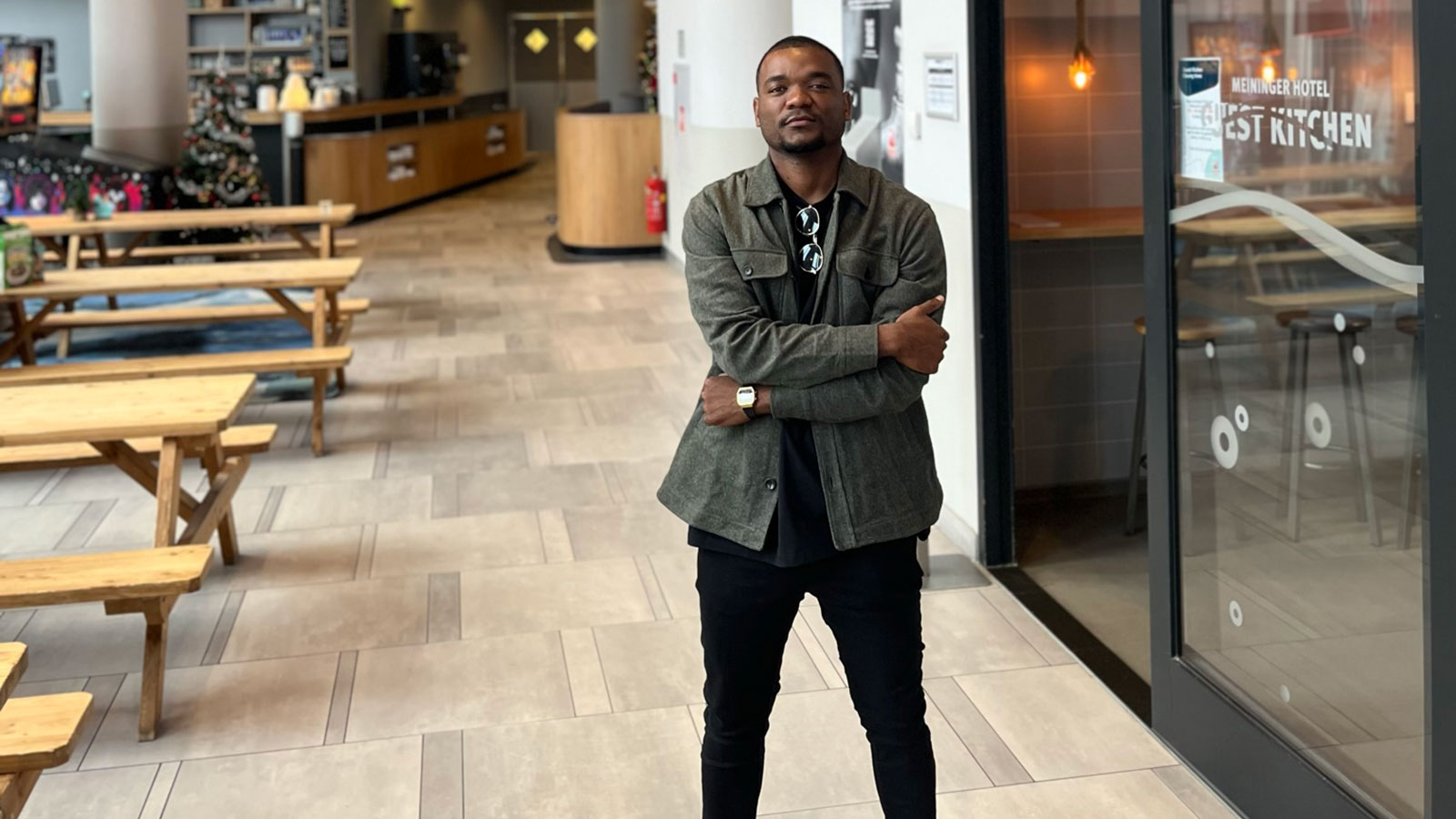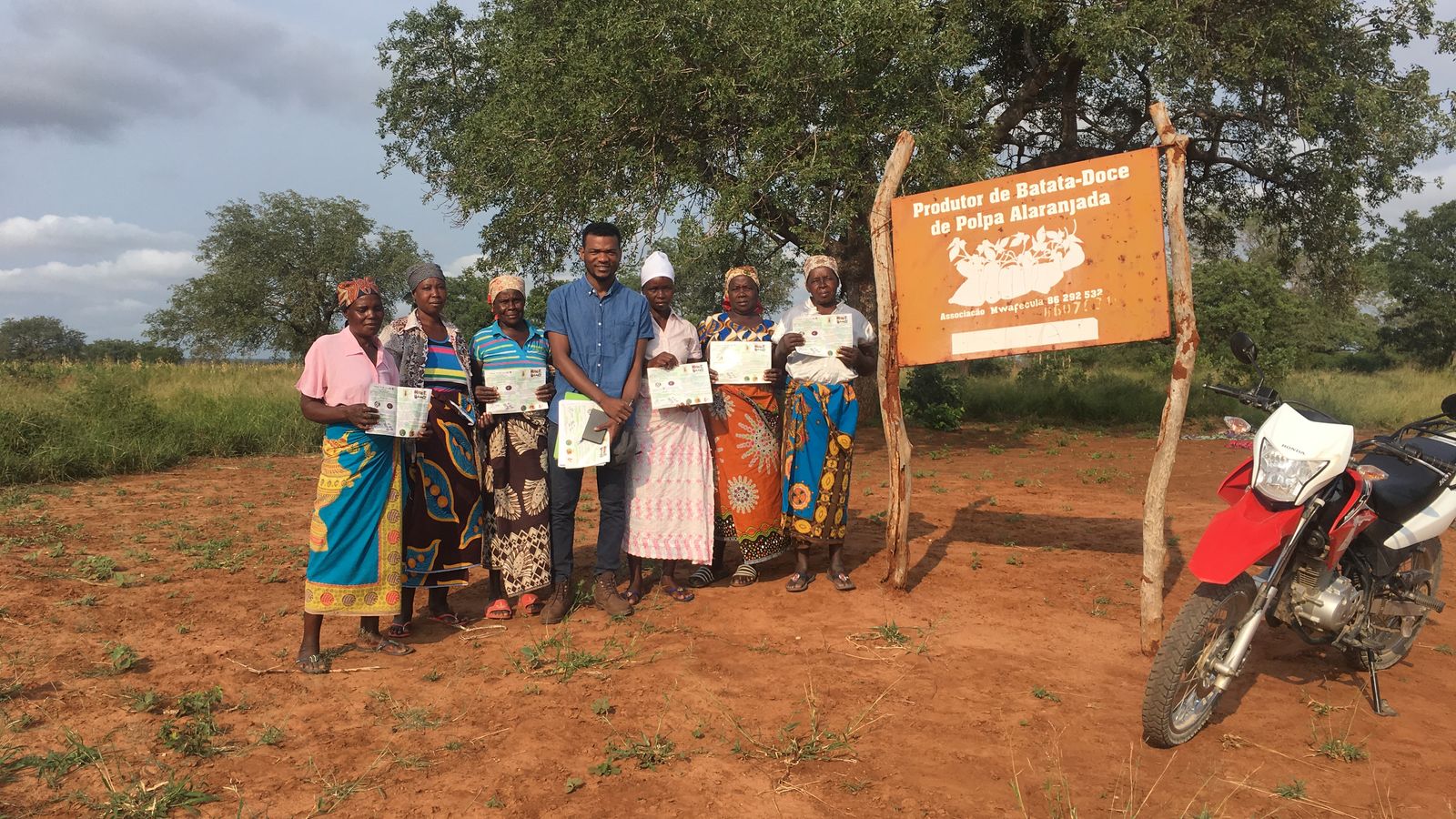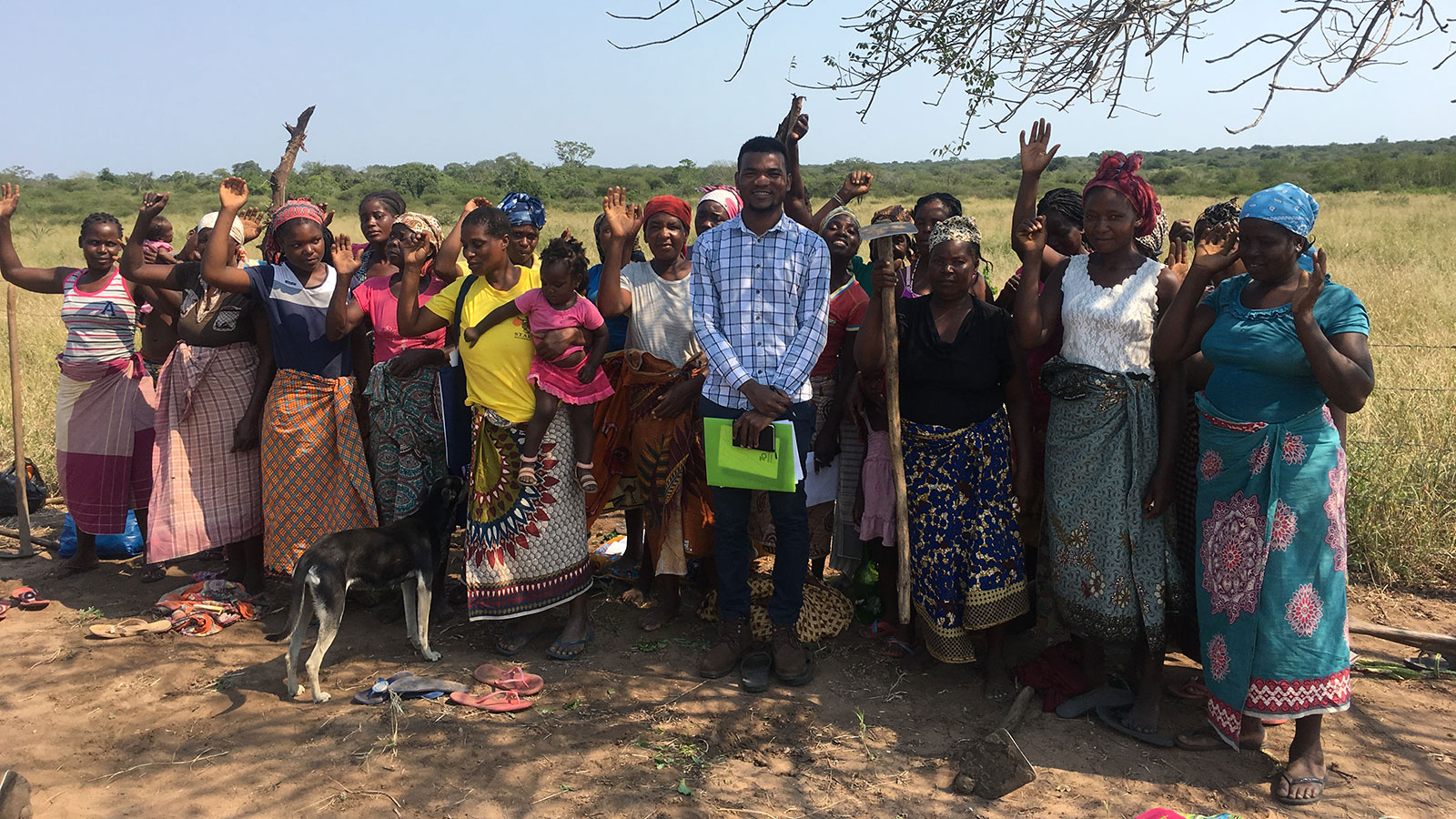Mohomede Saide
"Mozambique needs a driving force to guide the country"
Born in the far north of Mozambique in the city of Pemba, Mohomede grew up in the Paquite neighbourhood. He completed his primary education in Pemba and hasn’t stopped since, graduating in Sociology in Maputo and taking a Master’s in Rural Development in Porto Alegre, Brazil.
In 2021, he received a Gulbenkian Scholarship to do a PhD in Agribusiness and Sustainability at the University of Évora with the dissertation topic “Study of Practices of Adaptation to Climate Change in Associated Farmers in Southern Mozambique.” Mohomede Saíde revealed his plans in this conversation during the research and data collection phase, which took place remotely from his home country.

You have a degree in Sociology, a Master’s in Rural Development, and are now doing a PhD in Agribusiness and Sustainability. How did you become interested in these areas?
When I went to Maputo, I remember that choosing a course in higher education was not a decision we put a lot of thought into… we just wanted to get into university! I liked the arts, writing – at that time I even dreamed of becoming a journalist – so I applied for Sociology. I discovered what it is to do sociology and to be a sociologist within the faculty, and gained a taste for applied social research. I started to form a slightly more exact idea of what I wanted to do, which was essentially scientific and academic research.
In 2015, I won a public competition and was admitted to work at the National Institute of Health, a body attached to the Ministry of Health in Mozambique that produces scientific evidence in public health. But my dream was to work on climate, agriculture, environment and development issues, so I decided to do a Master’s in Rural Development in Brazil. I travelled there in 2018 and then returned to Mozambique and enrolled for a PhD in Agrobusiness and Sustainability.
This was basically my route. First a bit intuitively, but over the last few years I’ve increasingly tapered my areas of interest.
You are studying Agribusiness and Sustainability, but you also work with Health. How do these two things connect?
They are both transversal areas. The health area is related to nutrition and women’s and children’s health, which are issues I have been working on, and also with climate issues, particularly adaptation. How do we make communities resilient to the effects of climate change?
Mozambique is essentially rural and is one of the African countries most affected by climate change. I have always been interested in interventions in rural areas to generate sustainable and continuous transformation that creates results on the continent and in the rest of the world.
After this PhD, what do you see yourself doing in the future? Continue researching? Working?
I’m inclined to focus more on the area of agriculture, particularly agrarian research and practices to deal with extreme weather events (such as drought). I am very interested in understanding how climate change-prone regions have adapted, both from the point of view of more structural and marginal practices. I would like to focus my professional research and become part of networks of researchers, companies or entities interested in this area.
You have studied in Mozambique, Brazil (Porto Alegre) and Portugal (Évora). What would you highlight from these very different experiences?
There are substantial differences. I don’t know if it is because of their historical relations, but I believe that Mozambique and Portugal have a little more in common than Brazil and Mozambique when it comes to the academic environment and their way of dealing with knowledge and learning processes and methodologies. We have one language, which is Portuguese, but we know that science communicates in English and has to be open and global.
The differences are cultural, basically. Differences in the societies as a whole. Although Brazil is a place where I have felt immensely happy, it has been going through very difficult and turbulent times in recent years. Portugal meets my expectations: excellent teaching, top teachers and academic structure. I am immensely happy to be going through this experience.
But is Mozambique where you see yourself staying?
I’m very tempted to go against stereotypes, namely that of the young African who emigrates and stays in Europe. Mozambique needs a driving force to guide the country. We need innovative young people with horizons from my area, but also from others – the arts, culture, science, technology. I have a broad vision of what it means to belong to a country and to be a force that contributes to national interests, but I am a citizen of the world, I am open to opportunities in Mozambique, in Portugal and in any other country.
What was the importance of the Gulbenkian Scholarship for your career?
Gulbenkian and the scholarship enabled me to fulfil my dream, which was to continue my studies at PhD level, to travel to Portugal and study there. Without that help, in the conditions I was in, I wouldn’t have been able to do it. It was only after getting the scholarship that I learnt how exclusive the group is. It is a global network of excellence. I have met many scholarship holders of different nationalities, from Africa and elsewhere. For me it is really gratifying. It is a responsibility and an honour to be part of this network.

Did your family always encourage you to study?
I come from a family of nine siblings and was the first to have completed higher education. I had a very strong family incentive, especially from my father, who always encouraged me to academic and professional excellence and in everything I did. Currently I am replicating that encouragement with my brothers, so that the whole family is very engaged and interested in education.
But Mozambique is a country with many difficulties and limitations in access to education, especially in the remote and rural areas. We have health and education professionals who make a titanic effort, but they belong to a country where we have to try twice as hard to achieve things. I was already aware that applying for a Gulbenkian scholarship meant competing with the best brains and talents in the Portuguese-speaking world. I wanted to belong to that milieu, and I prepared myself for that.
Are you the eldest of the nine siblings?
I’m the third. I have two older sisters. But in Mozambique they say that the male child is always the eldest in a social sense [laughs]. But joking aside, my sisters have their own struggles and battles, and they have always encouraged me in mine.
Where do you see yourself in five years time?
I see myself managing some intervention in agriculture, environment and development, working and being part of a global climate solution that Mozambique, Africa and the world needs. Professionally, one of my ambitions is to belong to one of the best institutions working in these areas, especially those dealing with climate change. I have a very clear notion of what I want to do in the future and I am training myself for it.
Basically, you want to contribute to saving the world…
There are several ways to save the world, and I think that if nine million souls wake up and think that they want to save the world, deep down we might even succeed. But I don’t know if I would be that ambitious. At the very least I would like to have a positive impact. I think that within my environment this is possible, as we create small movements, bubbles of hope. We don’t have to work only for a global pact, but for small local agreements, respecting the cultural and social specificities of the people who make up the places, using informal agreements as a base, looking people in the eye and dreaming of a better world… that’s what interests me.
“I'm not interested in gathering 200 people in Geneva and discussing how we are going to save the world. I'm interested in gathering 10 neighbours and deciding how we get a better access road, how we get clean water, feed families in a healthy way, with education for all, clean clothes and books to read. There is a micro level of how we can save the world. That's what I believe in.”
— Mohomede Saide
So you are optimistic about the future of the planet?
I have to be! If I want to be part of the solution, I have to be.


